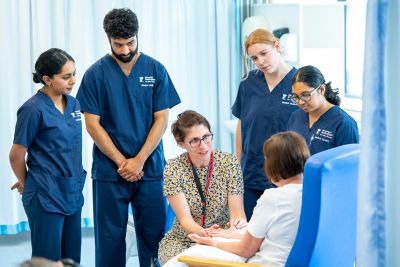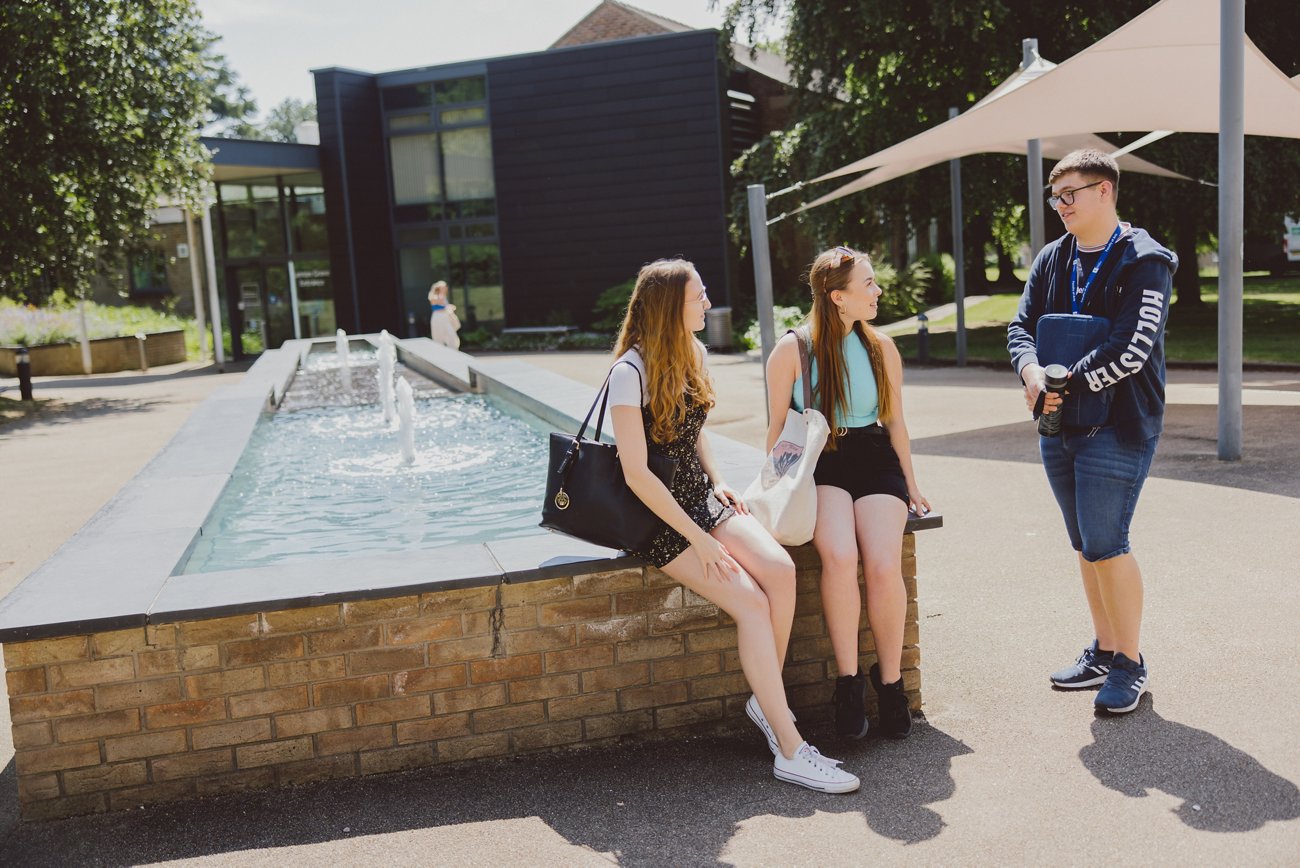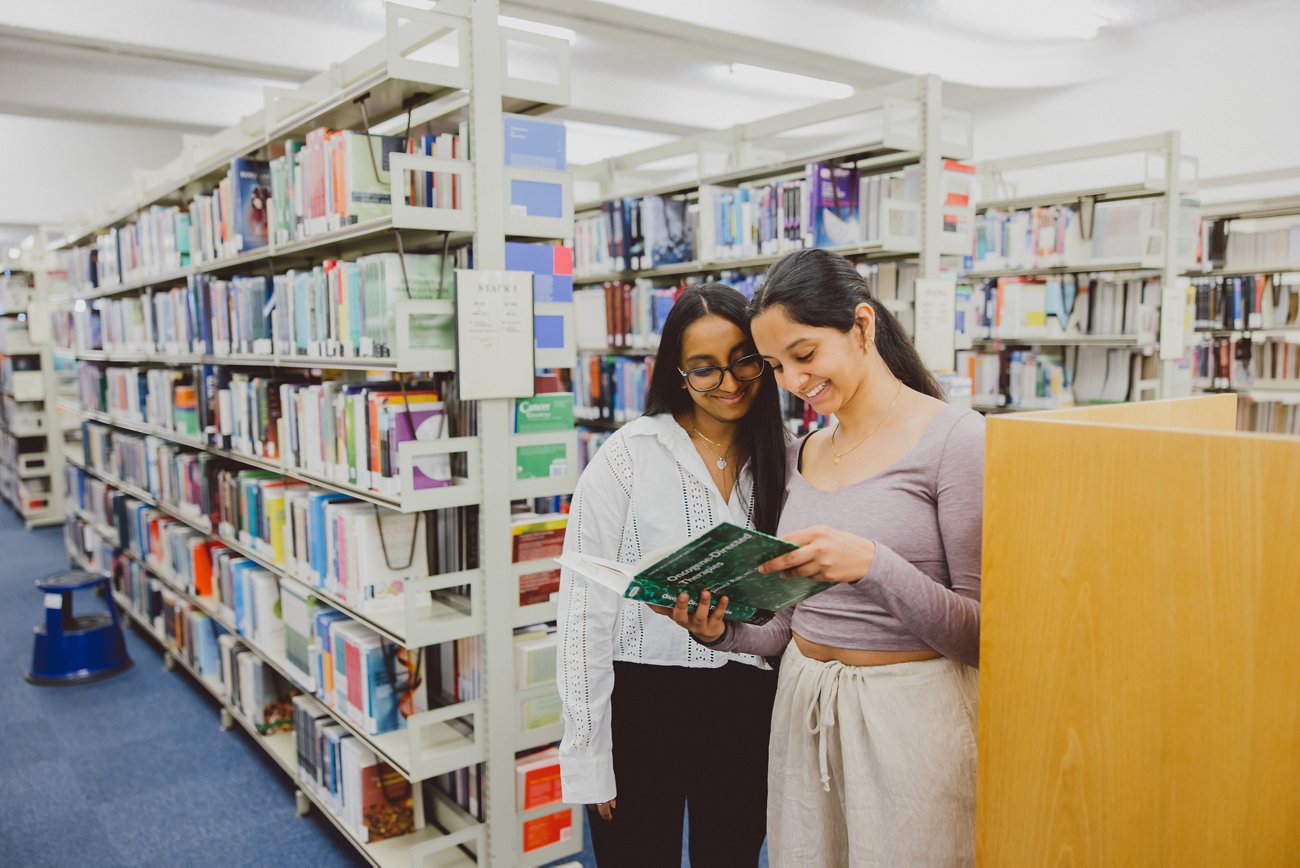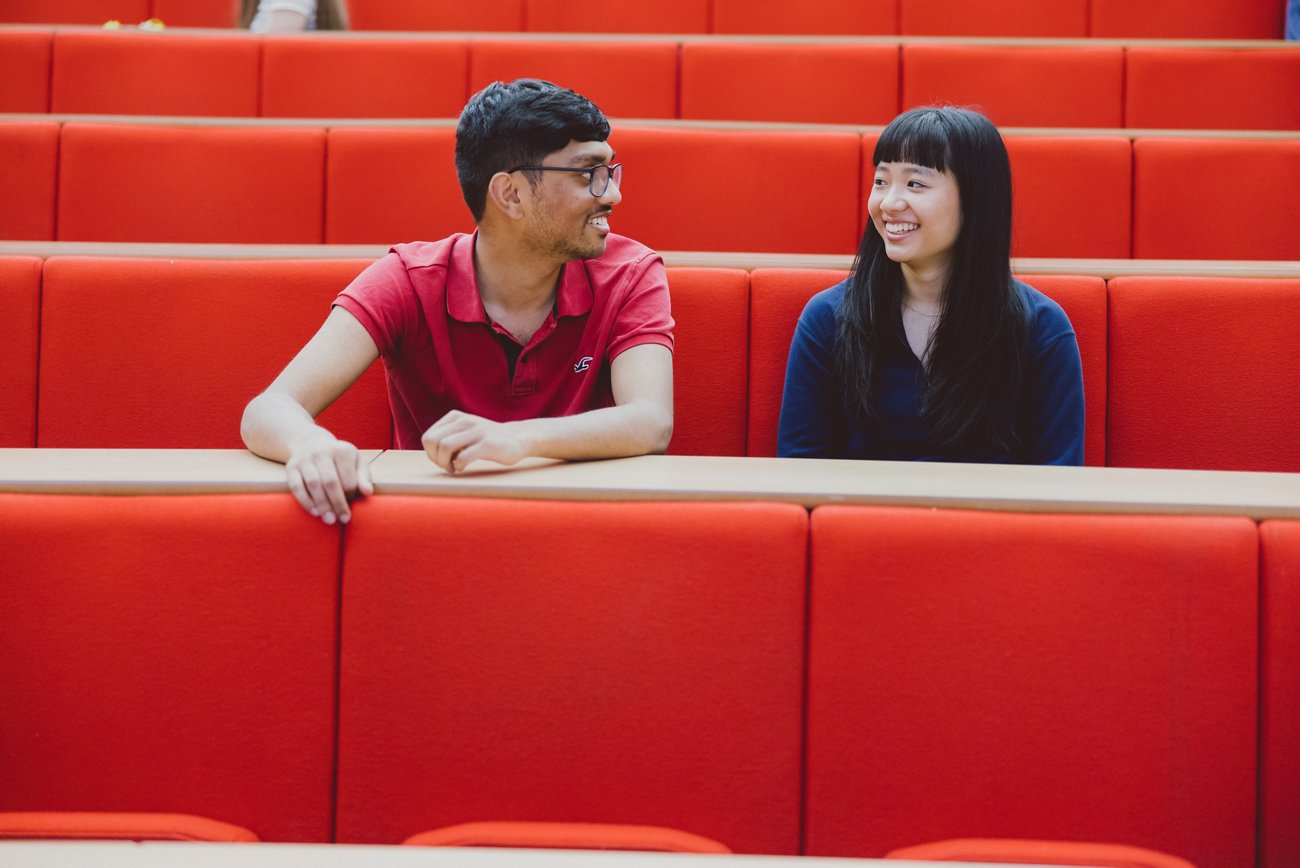
By joining the University of Nottingham, you’ll become part of a medical school with a proud 50-year history of training exceptional doctors and spearheading vital breakthroughs in research.
Our sector-leading course builds on that legacy, having been co-created with students, patients, staff and healthcare professionals to reflect the ever-evolving needs of patients and the NHS.
Shaped by the latest research, our curriculum is taught by educators who are at the forefront of medical innovation and committed to nurturing your passion for discovery.
Many of our key staff members are also active clinicians and health professionals, ensuring they bring current, real-world experience to their teaching.
Our pioneering teaching methods are enhanced by the latest technology, allowing you to learn in a simulated environment before moving into the clinical workplace.
Spiral curriculum
Our undergraduate Medicine course is taught through a spiral curriculum.
This iterative teaching approach will see you revisit topics throughout the course, continuously exploring them in greater depth to reinforce your knowledge.
This method gradually introduces more in-depth concepts, ensuring you build a strong foundation as you progress.
Essential skills such as patient care, professionalism and communication are also an integral part of the course, ensuring you’ll feel fully confident to step out into clinical practice.
Delivery of teaching
As the course progresses, teaching methods evolve to ensure comprehensive coverage of the topics and competencies necessary for a successful medical career.
These methods typically include a blend of lectures, group-based learning and clinical and communication skills practice, underpinned by the latest technology in simulation and virtual and augmented reality.

Medical students attending a seminar about Gastrointestinal Surgery in QMC
Case-based discussions
Case-based discussions immerse you in real medical decision-making from your first year.
You’ll explore patient cases in small groups, developing your clinical reasoning and teamwork skills.
By working through real-life scenarios you can connect theory to practice, preparing you for real hospital environments. These discussions also promote active learning, encouraging you to ask questions, debate options and find solutions together.
This hands-on approach builds the knowledge, confidence and communication skills you’ll need for success in clinical practice.
Simulated learning
Simulated learning places you at the heart of the action from the very start of your medical training.
Our approach goes beyond the basics, incorporating high-fidelity simulation scenarios and immersive technology designed to enhance your clinical and communication skills.
You’ll navigate realistic, complex scenarios, such as breaking down sensitive medical information and leading shared decision-making conversations. Through these powerful simulations, you’ll develop the skills to communicate, collaborate and lead under pressure.
Each scenario has specific learning objectives and is followed by expert-led debriefs and reflections.
These sessions help you map patient journeys and identify real-world improvements in care, ensuring you’re well-equipped for the demands of clinical practice.
Led by experienced educators and students, the sessions replicate the demands and realities of real-world medicine. By mastering complex interactions early on, you’ll be better prepared, more confident and ready to excel in your clinical placements.

Students learning to perform an examination
Immersive technology
Our immersive simulation suites offer realistic, hands-on experiences. Equipped with 360-degree projectors, these rooms replicate clinical environments like a hospital ward or operating theatre, enabling you to hone your decision-making and communication skills in a simulated space.
You’ll also learn in VR classrooms that allow you to virtually step into complex medical scenarios in a safe way. These settings offer experiences such as performing clinical procedures or diagnosing patients, fostering a deeper understanding through active learning.
Anatomy
At Nottingham you’ll study anatomy in a clinically relevant context, ensuring that the themes and conditions you examine align with your broader learning and clinical skills development for a cohesive experience throughout the course.
We enhance our anatomy teaching with innovative technology, including virtual reality digital apps like Complete Anatomy and clinical imaging tools that display comprehensive 3D models.
You will have the opportunity to use these technologies both inside and outside of the classroom, allowing you to build your confidence in anatomy at your own pace.

Undergraduate student conducting eye examination
Clinical experience
Clinical experience is woven throughout the programme, with increasing time spent on clinical placements as you progress. You’ll also have regular meetings with your educational supervisor to guide your development.
We emphasise small group teaching, which supports both peer-to-peer and self-directed learning, allowing you to understand and learn in a way that suits you best.
During your first and second years, most of your teaching will be delivered on University of Nottingham campuses, along with our NHS primary care providers across Nottinghamshire and Derbyshire.
From the third year, you’ll spend more time in clinical attachments within local hospitals, community and primary care settings, while continuing to spend time on the University of Nottingham campuses.
Interprofessional Learning Practice
Interprofessional Learning Practice sees students from different healthcare professions learning together to foster effective collaboration and improve health outcomes.
At Nottingham, Interprofessional Learning is built into your course – preparing you for the complexities of modern healthcare, where teamwork and communication are crucial.








